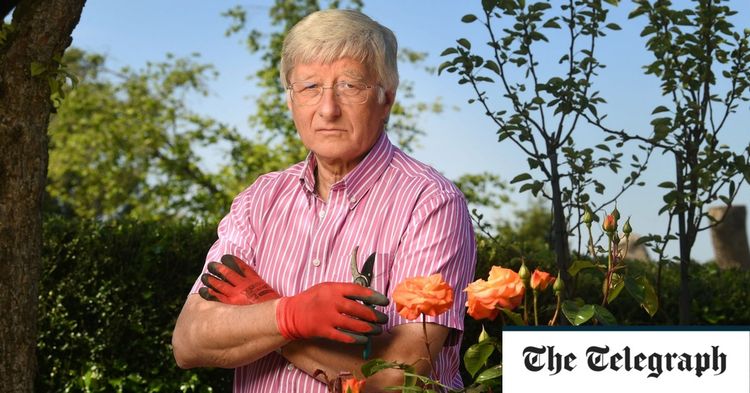Treasury to get £2bn inheritance tax boost as Jeremy Hunt shelves cuts

The cancellation of cost-cutting measures means that in the next five years, families may have to shell out an additional £2 billion in inheritance tax.
The Office for Budget Responsibility is now forecasting that the collection of inheritance tax will reach a total of £47 billion from 2022 to 2027, which is higher than the earlier prediction of £45 billion at the Spring Budget.
The forecaster in charge declared that they had adjusted their calculations due to the increasing value of assets. This information was released alongside the Autumn Statement in official documents.
The Conservatives may face more pressure to lessen the impact of the controversial 40 percent tax.
Jeremy Hunt and Rishi Sunak had planned to either decrease the inheritance tax rate or completely remove the fee to gain support before the upcoming election.
The Telegraph and nearly 50 Members of Parliament have united to advocate for the elimination of this tax.
Although numerous Tory backbenchers urged for it, the Chancellor did not address the tax in his speech to the Commons on Wednesday. Instead, he opted to decrease National Insurance rates.
Rachel Reeves, who acts as spokesperson for the opposing party on financial matters, stated that the recent efforts of the Chancellor and Prime Minister to promote changes to inheritance tax were ultimately fruitless and contradictory, as they appear to have reversed their stance on the issue in a short time frame.
The OBR recently updated its forecasts and predicts that the amount of money collected from inheritance tax will increase from £7.6bn this year to approximately £10bn in 2028-29.
The primary allowance of £325,000 has been stagnant since 2009, but there's another tax break of £175,000 for individuals who transfer their primary residence to their offspring or grandchildren. By merging these two tax breaks, spouses and civil partners can transfer up to £1m tax-free.
Despite the fact that more families will be affected by "fiscal drag" due to the frozen additional home allowance, approximately 40,000 families will be required to pay. Last year, this number was only 27,000. The Institute for Fiscal Studies predicts that by 2032-33, one in eight individuals will be charged inheritance tax when they or their partner passes away.
According to Rachael Griffin, a representative from Quilter, the residence nil-rate band may present a growing issue in the future. This is due to the increasing number of elderly individuals who do not have children, as the band's requirements may exclude them from its benefits.
According to surveys, inheritance tax is not well-liked among people with different political views. Most individuals view it as a levy on funds that have already gone through the taxation process as income.
A recent survey revealed that Labour voters are more inclined than Conservative followers to believe that inheritance tax is unjust. This perception is mainly due to the fact that the super-rich can easily find ways to circumvent the tax, while the common folk, whose wealth mainly resides in their homes, end up paying a higher percentage. The wealthy enjoy lower effective rates of taxation because they can exploit tax exclusions on their investments and agricultural land. On the other hand, the less fortunate often have a significant portion of their assets tied up in their residential property.
According to a survey conducted by WeThink, almost 73% of Labour supporters believe that the 40% tax rate is unjust, while less than 70% of Conservative voters feel the same way.
The absence of any inheritance tax reform drew disappointment from the readers of the Telegraph.
Tony Mott, who hails from Hampshire and is 73 years old, anticipates that when he passes away, roughly £100,000 of his inheritance will be appropriated by the government. This is due to the remarkable rise in real estate prices in the South-East.
Mr. Mott is not married, so he is not eligible for the tax-free allowance of £175,000.
Similar to other individuals who do not have any kids to inherit their property, he can only take advantage of the main nil-rate band allowance which is £325,000. On average, residences in the South-East have a value of around £394,000.
On the other hand, Alison Pratt, a 60-year-old individual who works for a charitable organization in Farnham, Surrey, expressed her disappointment regarding the increase in the inheritance tax. She strongly believes that this implementation is unfavorable for individuals, such as her parents, who have worked hard in saving their money to eventually give it to their offspring or grandchildren. According to her, it only puts them at a disadvantage.
She expressed that the current cohort has constantly been urged to save their entire life, yet it doesn't appear to yield any benefits. In her opinion, one gets punished for being diligent in saving and wanting to leave behind their possessions or wealth to their offspring.
In her words, her parents couldn't unwind and have a peaceful retirement as they were worried about the possibility of paying excessive taxes and expenses for healthcare.
Lauren Groom, a former sports marketing executive from Wiltshire who is now 77 years old, has stated that she and her 81-year-old husband Michael have felt compelled to sell their house before they pass away in order to avoid paying inheritance tax. Mrs. Groom expressed a desire to be able to enjoy her retirement without having to concern herself with the tax implications. She also remarked that if the tax rate was more reasonable, people would be more willing to accept it. The current rate of 40% is seen by her as being far too high and heavy-handed.
She mentioned that if the Conservatives do not make a large enough reduction in taxes, they could lose support from senior citizens in the upcoming election.









































